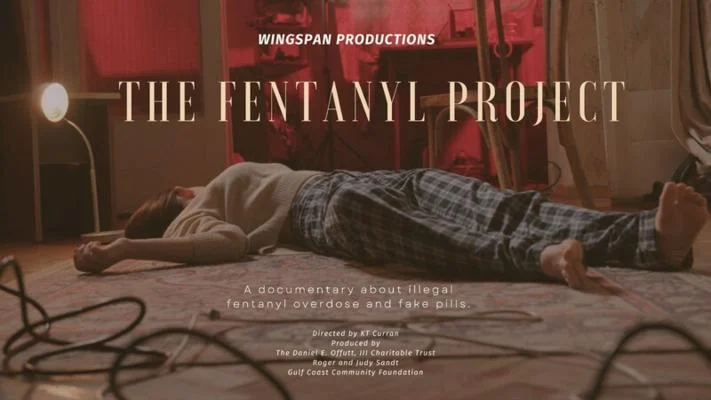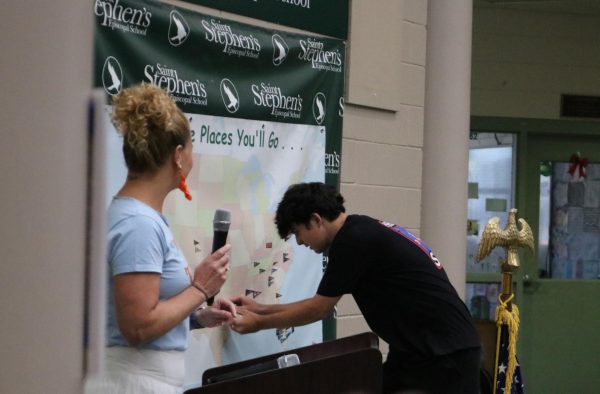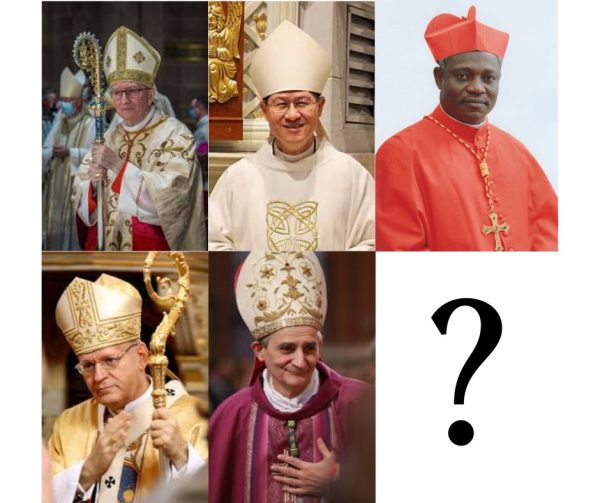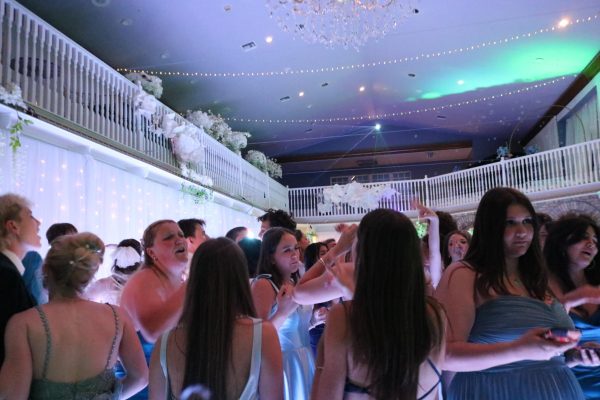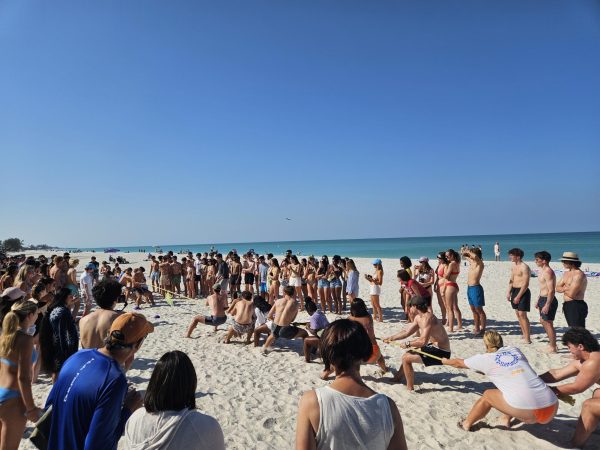Is Christmas overrated?
Christmas: it’s the best time of year. Or is it?
December 8, 2020
“This is what you do on your very first day in Paris. You get yourself some rain, not just a drizzle, but some honest-to-goodness rain. Then you find yourself someone really nice and drive her through the Bois de Boulogne in a taxi. The rain’s very important. Because that’s when Paris smells its sweetest. It’s the damp chestnut trees, you see.” That’s how Audrey Hepburn described Paris in the film “Sabrina.”
Paris. What place could be more perfect? The most beautiful, the most romantic city in the world. Except when it isn’t. Every year, visitors have to be flown home early, sometimes accompanied by a nurse, because they’ve succumbed to Paris Syndrome.
Paris Syndrome: it’s defined by The Atlantic as “a collection of physical and psychological symptoms experienced by first-time visitors realizing that Paris isn’t, in fact, what they thought it would be.” The vast majority of sufferers of this disease are from Japan, and there’s a simple reason for that: Japan romanticizes Parisian culture, probably even more so than anywhere else in the world.
So what does Paris have to do with Christmas? Well, to my way of thinking, Paris is to Japan as Christmas is to America.
Christmas, according to a survey by The Harris Poll, is the favorite holiday of 46% of all Americans, and it shows. The second Halloween is over, the Christmas season begins, perhaps with a few days carved out in the middle for Thanksgiving. The December holiday is so ingrained in American culture that we devote the better part of two months to celebrating it.
If everyone loves Christmas so much, that must mean it’s the perfect holiday, right? Well, not exactly.
Christmas is centered around buying things. Say what you will, but I believe that Christmas is more of a consumer holiday than it is a religious one. Sure, it started out as a celebration of Jesus’ birth that Christians alone recognized, but in over 2,000 years since that date, its observation has moved from the church into the secular world. Rather than a celebration of Christ, the loudest expression of Christmas spirit seems to be a celebration of putting hefty charges on your credit card.
Don’t get me wrong, I’m not trying to take the position of a vocal Christian who wants to put the Christ back into Christmas. Rather, I am condemning a holiday that has morphed into something purely based around spending money.
What’s wrong with a holiday of such a nature? Well, I’m sure you’ve heard the expression “money can’t buy happiness” before, and it’s true. Private school kids should know that more than anyone else. As cheesy as it might sound, I believe that happiness comes from things like spending quality time with people.
I think that’s why my favorite part of the holiday season always seems to be the time before Christmas Day. Rather than being centered around gifts, the buildup to Christmas is centered around experiences. Driving around to look at lights, decorating your Christmas tree, or just baking some good old-fashioned gingerbread men: these are all experiences instead of gifts, and I think they’re actually more fulfilling than Christmas Day itself.
I do love Christmas Day, and of course, I’m always excited to open up all my presents. However, I also find that going to sleep on Christmas Eve is truly bittersweet. On one hand, I’m excited, because the moment I have been waiting for for two months has almost arrived. On the other hand, though, I’m always a bit sad, because I know there is no way that the next day will live up to my expectations.
So let’s go back to Paris. In Japan, Paris is put up on a pedestal. The Japanese build up the city so much that no matter how unique and wonderful it may be, it just can’t live up to the heightened expectations they’ve created for it. It’s a matter of culture, one which causes disappointment to be inevitable.
American culture does the same to Christmas, and the reasons are purely economic. Retailers need Christmas. The National Retail Federation estimates that November and December account for at least a fifth of annual retail sales.
So, when you walk into a store during the Christmas season, every single thing in that store is designed to get you to spend as much money as you possibly can. Make no mistake: the Christmas decorations, music, and displays that you see in Target are not just a nicety to lift your spirits. They’re all designed to emotionally sway you into buying more than you really need to.
But that feeling is yours. It occurs naturally. It’s the spirit of the season. And whether you’re joyful over Jesus’ birth, or the Festival of Lights, or the pause brought by the end of another year that reminds you of the enduring cycle of life, that joy is your own.
The cure for Paris Syndrome is to return home and never go back. And for us, maybe the cure for Christmas letdown is to hold firm against the outside hype. Christmas is a great holiday. The whole season has a feeling of hopefulness and gratitude that no other time does. Go with that. Because if you get caught in the commercial buildup, with its ad-driven images of smiling perfection, it’s veritably impossible to live up to the expectations After all, that buildup only leads to opening up presents and I don’t think there is any amount of presents that can match the energy that the holiday season naturally brings.



